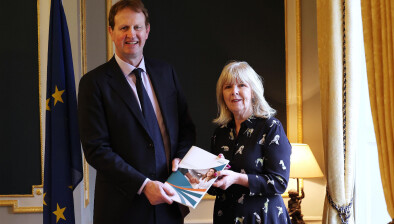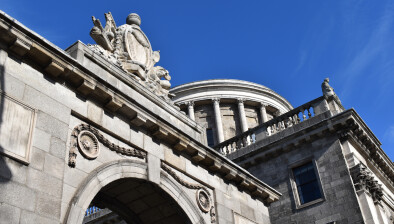High Court: Councillors must authorise litigation of matters relating to their reserved functions

The High Court has determined that express authorisation from local authority elected members must be given to the authority’s chief executive prior to taking any step to prepare for and/or to conduct litigation relating to the manner in which they have exercised or performed their reserved functions.

About this case:
- Citation:[2024] IEHC 381
- Judgment:
- Court:High Court
- Judge:Ms Justice Emily Farrell
Delivering judgment for the High Court, Ms Justice Emily Farrell determined: “It is not consistent with the reservation of functions to the elected members that proceedings, in which acts taken by them in exercise of their reserved functions, are controlled by the Chief Executive unless the elected members take the positive step of intervening to prevent that. The onus is on the Chief Executive to ensure that she or he has the authorisation of the elected members to take steps to defend the manner in which they have exercised or performed their reserved functions.”
Background
The applicant challenged a decision of Dún Laoghaire-Rathdown County Council to adopt a development plan to which a ‘specific local objective’ to provide for primary and post-primary education facilities at Stillorgan Industrial Estate/Benildus Avenue was attached.
The parties agreed that the interpretation of s.153(2) of the Local Government Act 2001 and whether the chief executive of the council had been expressly authorised, or had been deemed to be expressly authorised, to defend the proceedings by the elected members of the council required determination as a preliminary issue.
The applicant contended that s.153(2) contains a mandatory component requiring the chief executive to have the express authorisation of the elected council in the doing of any act, matter or thing in proceedings relating to a reserved function; an evidential presumption that express authorisation has been given; and recognition that the evidential presumption may be rebutted.
The respondent asserted that the starting point is the existence of a “deemed authorisation” and that it is only where a positive step is taken by the elected members to actively direct the chief executive not to do any act, matter or thing specified in s.153(1) that the contrary may be shown — a “de-authorisation”.
The High Court
The High Court observed that the point of dispute between the parties was whether the chief executive can take whatever steps necessary to defend the proceedings by virtue of a “deemed authorisation” unless the elected members positively direct him/her not to take such steps, or whether the chief executive must be given express authorisation by the council and that there is an evidential presumption that such authorisation has been given, unless displaced.
Ms Justice Farrell considered s.153(2), which provides: “Where an action or other proceeding relates to the exercise or performance by the local authority of a reserved function, the [chief executive] for that authority shall, in the doing of any such act, matter, or thing referred to in subsection (1), act with the express authorisation of the elected council of such local authority, and in any proceedings such authorisation shall be deemed to have been given unless or until the contrary is shown.”
Finding that judicial review proceedings come within s.153(2), the judge recounted that the respondent’s solicitor had written to the court and to the parties stating that no formal resolution had been passed by the elected members, but they were aware of the proceedings having been been formally briefed by the chief executive.
Examining the ‘briefing’ letter sent to the elected members, the court determined that “no other information was given to the elected members by the Chief Executive or the Law Agent which would have enabled them to form their own view of the benefit or risk of defending the proceedings. The material, provided for the information of the elected members, did not refer to section 153, directly or inferentially.”
Ms Justice Farrell considered the jurisprudence on statutory interpretation, agreeing with the respondent that if two interpretations are open, the appropriate interpretation is the one which is more coherent and consistent with the context of the 2001 Act generally, and with the applicant that the phrase “shall act” should be interpreted in the same manner in subsections (1) and (2) of s.153.
The court examined s.153(1) which provides inter alia that the chief executive shall act for and on behalf of local authorities in all proceedings, noting that the section “must be interpreted in the context of the Oireachtas having clearly divided the functions which can be exercised by a local authority between reserved functions and executive functions”.
Ms Justice Farrell noted that there was no evidence before her as to the manner in which s.153(2), or its predecessor, were operated or interpreted by local authorities.
Commenting that “no doubt this is due to the fact that express authorisation is deemed to have been given unless or until the contrary is shown”, the judge determined that “even if it were demonstrated that there was an established common practice on the part of local authorities as to how section 153(2) should be operated, such a practice would have minimal, if any, relevance to the interpretation of the statutory provision”.
Finding the starting point to be the first clause of s.153(2) which refers to an “express authorisation”, Ms Justice Farrell observed: “A requirement that ‘express authorisation’ be given to the Chief Executive supports rather than undermines the scheme of the Act which clearly divides functions between executive and reserved functions.”
The court continued: “Where proceedings involve the exercise or performance of functions which are within the domain of the elected members, such as the making of a development plan in this case, it is appropriate that the Chief Executive be required to have the express authorisation of the elected members to take steps in those proceedings.”
Ms Justice Farrell was satisfied that the “deeming provision” in s.153(2) is an evidential presumption which could be rebutted and does not obviate the need for the chief executive to obtain express authorisation from the council, rather it enables the chief executive to take steps in, and in relation to proceedings, without needing to provide evidence of express authorisation.
Accordingly, the High Court determined that s.153(2) requires a positive step in that the elected members must provide express authorisation, by clearly and directly communicating their consent to the chief executive doing any act, matter or thing, to prepare for and/or conduct the litigation.
The court also rejected that the positive act envisaged by s.153(2) is the “de-authorisation” of the chief executive and that the 2001 Act permits her or him to do any act, matter or thing unless the elected members intervene to negate a “deemed authorisation”.
Conclusion
Accordingly, the High Court determined that no “express authorisation” for the purposes of s.153(2) had been provided by the council and invited the parties’ submissions as to the effect of that finding on the motions before the court.
Oceanscape Unlimited Company v Dún Laoghaire-Rathdown County Council [2024] IEHC 381








